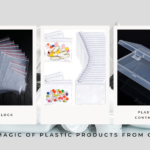If you’re in the business of importing construction materials to Malaysia, it’s crucial to understand the role of the Construction Industry Development Board (CIDB) and the importance of obtaining a CIDB license. In this blog post, we’ll explore what a CIDB license is, who needs it, and the key benefits it provides for importers of construction materials. By the end of this article, you’ll have a better understanding of the requirements and processes involved in obtaining a CIDB license, and how it can help you streamline your importing operations and ensure compliance with local regulations.
What is a CIDB License?
CIDB stands for Construction Industry Development Board, and it is a regulatory agency in Malaysia that oversees and regulates the country’s construction industry. One of the primary functions of the CIDB is to ensure that construction projects in Malaysia are carried out safely and efficiently, and to promote the growth and development of the industry.
A CIDB license is a requirement for any individual or company that wants to engage in the construction industry in Malaysia. The license is issued by the CIDB and is mandatory for all contractors, sub-contractors, and specialist contractors involved in the construction of buildings, civil engineering works, or mechanical and electrical works. The license is also required for any person or company that provides construction-related services or supplies construction materials.
There are several different types of CIDB licenses, each with different requirements and restrictions. The most common types of CIDB licenses include the G1, G2, and G3 licenses, which are issued to contractors based on the size and scope of their construction projects. The G1 license is for projects with a value of up to RM200,000, the G2 license is for projects with a value of up to RM500,000, and the G3 license is for projects with a value of up to RM1,000,000.
In addition to the G licenses, there are also several other types of CIDB licenses, including the SPKK license, which is issued to specialist contractors, and the PKK license, which is issued to contractors involved in public works projects.
Obtaining a CIDB license can be a complex and time-consuming process, and it requires the submission of various documents and the completion of several steps. However, the license is an important requirement for anyone who wants to engage in the construction industry in Malaysia, and it helps to ensure that construction projects are carried out safely and efficiently.
Why is a CIDB License Important for Importing Construction Materials to Malaysia?
A CIDB license is important for importing construction materials to Malaysia because it is a requirement imposed by the Malaysian government. The government wants to ensure that construction materials used in Malaysia meet certain standards and safety requirements.
One of the main reasons for the requirement is to protect consumers from unsafe or substandard materials. With a CIDB license, importers of construction materials are required to comply with Malaysian construction laws and regulations, which helps to ensure that materials meet safety and quality standards.
In addition to safety concerns, a CIDB license is also important for importers because it can impact their ability to do business in Malaysia. Without a CIDB license, importers of construction materials may not be able to get their products approved for use in construction projects, which can limit their potential customer base.
It’s also worth noting that the Malaysian government is cracking down on unlicensed importers of construction materials. In recent years, there have been increased inspections and penalties for those found to be importing materials without the necessary licenses.
Overall, obtaining a CIDB license is an important step for anyone looking to import construction materials to Malaysia. Not only does it help ensure that materials meet safety and quality standards, but it can also help importers expand their business and avoid penalties for non-compliance.

5 Tips for Importing Construction Materials to Malaysia:
Importing construction materials to Malaysia can be a complex process that involves navigating various regulations and requirements. Here are five tips to help make the process smoother:
- Know the import regulations: Before you start importing any construction materials, it’s important to research the specific import regulations and requirements that apply to the product you’re importing. Malaysia has strict regulations around the import of construction materials, and failing to comply with these regulations can result in delays or even fines.
- Choose the right shipping method: When it comes to importing construction materials, choosing the right shipping method can make a big difference in both cost and efficiency. For larger shipments, full container load (FCL) shipping is often the most cost-effective option, while for smaller shipments, less-than-container load (LCL) shipping may be more appropriate.
- Work with a reliable supplier: Choosing a reliable supplier is key to ensuring that your construction materials are of good quality and meet all necessary standards. Be sure to research your supplier thoroughly before making a purchase, and consider working with a third-party inspection service to verify the quality of your materials.
- Check for HS codes: Each type of construction material has a specific HS code, which is used to determine the tariff rate and any import restrictions that apply. Make sure you know the HS code for your materials before importing them to avoid any unnecessary delays or fees. Tutorial how to check HSCode
- Consider working with a logistics provider: Working with a logistics provider can help simplify the process of importing construction materials to Malaysia. They can help with everything from arranging shipping and handling customs clearance to providing advice on import regulations and requirements. By partnering with a logistics provider, you can focus on your business while leaving the logistics to the experts.

Our Logistics Services for Importing Construction Materials to Malaysia
If you are looking to import construction materials to Malaysia, logistics and custom clearance is a critical aspect that you need to consider. With the strict regulations and compliance requirements, it can be challenging to navigate the process on your own. That’s where our logistics services come in.
CIEF Worldwide Sdn Bhd offer a comprehensive logistics and custom clearance solution for importing construction materials to Malaysia. Here are some of the ways we can help:
- If your company is NOT eligible to apply for a CIDB license, we can handle the process on your behalf. This means that you don’t have to go through the complicated and time-consuming process of obtaining a CIDB license. Our team of experts can handle all the necessary procedures and paperwork, ensuring that your materials are imported smoothly. Our service of FCL Package can handle this part for you
- We can handle door-to-door logistics services for your shipments. Our team can help you choose the most suitable shipping method for your needs, whether it’s EXW, FOB, or CNF terms. We also provide custom clearance services to ensure that your materials comply with all the relevant regulations and are cleared for entry into Malaysia. Once your shipment arrives, we can also handle the last-mile delivery, ensuring that your materials are delivered straight to your doorstep. If you already have CIDB license , Our service of FCL General can handle this part for you.
With our logistics services, you can rest assured that your construction materials will be imported safely and efficiently. Contact us today to learn more about how we can help streamline your importing process.













